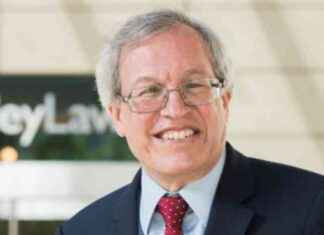Title: Chicago Lawyer Sentenced for Bank Embezzlement Interrupts Judge with Victimhood Claim
A Chicago lawyer was sentenced to prison for bank embezzlement, but not without a dramatic display in court. Robert Kowalski, the convicted lawyer, interrupted the judge multiple times during the sentencing hearing, claiming that he was a victim in the case. However, his claims were met with harsh criticism from U.S. District Judge Virginia Kendall, who described Kowalski as “absolutely incapable of looking at the reality of the situation.”
Subheadings:
Judge’s Criticism of Kowalski’s Behavior
Details of Kowalski’s Crimes and Conviction
Response from Prosecutors and Court
Judge’s Sentencing and Restitution Orders
Judge’s Criticism of Kowalski’s Behavior
During the sentencing hearing, Robert Kowalski displayed erratic behavior, including interruptions and outbursts. Judge Kendall did not mince words in her assessment of Kowalski, stating that he had shown no respect for the rule of law through his actions. She pointed out that his false records, lies, denials, and yelling demonstrated a lack of understanding of his role in the crimes he committed.
Kendall went on to accuse Kowalski of having no respect for the integrity of the court system, noting that his repeated claims of violated rights were unfounded. Despite Kowalski’s attempts to paint himself as a victim, the judge firmly rejected his assertions, labeling him as delusional.
Details of Kowalski’s Crimes and Conviction
The case against Robert Kowalski stemmed from the collapse of the Washington Federal Bank for Savings in Chicago in December 2017. Prosecutors alleged that Kowalski, in collusion with former bank president John Gembara, embezzled over $8 million from the bank by falsifying records and diverting funds. Kowalski was also accused of bankruptcy fraud and tax fraud in an attempt to conceal his illicit activities.
After a lengthy legal battle that included bizarre pretrial hearings and numerous motions, Kowalski was convicted in March 2023. The Department of Justice press release confirmed his guilt on the charges of embezzlement, bankruptcy fraud, and tax fraud, sealing his fate.
Response from Prosecutors and Court
Prosecutors painted a damning picture of Kowalski’s actions, alleging that he not only defrauded the bank but also attempted to hide assets during bankruptcy proceedings to evade accountability. Kowalski’s filing of false tax returns further compounded his legal troubles, as he sought to manipulate financial records to support his fraudulent schemes.
In addition to his 25-year prison sentence, Judge Kendall ordered Kowalski to pay restitution totaling over $7.2 million to the Federal Deposit Insurance Corporation (FDIC) and more than $400,000 in back taxes to the Internal Revenue Service (IRS). The hefty financial penalties underscored the severity of Kowalski’s crimes and the impact they had on the banking system.
Judge’s Sentencing and Restitution Orders
Despite Kowalski’s attempts to portray himself as a victim in the case, Judge Kendall remained steadfast in her condemnation of his actions. She refuted his claims of innocence and victimhood, emphasizing that he had constructed a facade to conceal his culpability.
The sentencing hearing served as a stark reminder of the consequences of financial crimes and the importance of upholding the rule of law. As Kowalski begins his lengthy prison term, the victims of his schemes can find some measure of justice in the restitution orders imposed by the court.
In conclusion, Robert Kowalski’s sentencing for bank embezzlement was marked by a defiant display of victimhood that was swiftly rejected by the presiding judge. His conviction and the subsequent legal proceedings underscored the gravity of white-collar crimes and the need for accountability in the financial sector. As Kowalski faces the consequences of his actions, the justice system sends a clear message that fraud and deceit will not go unpunished.











